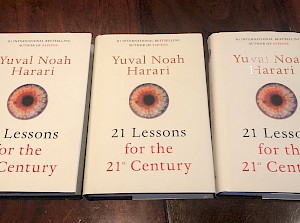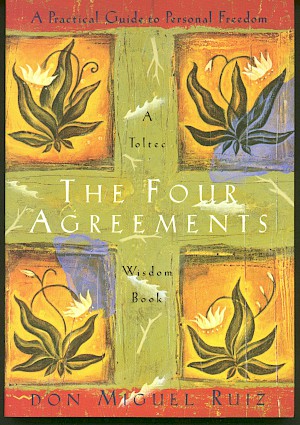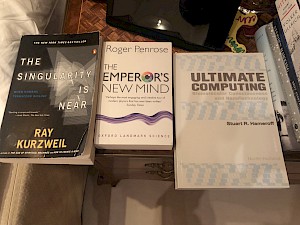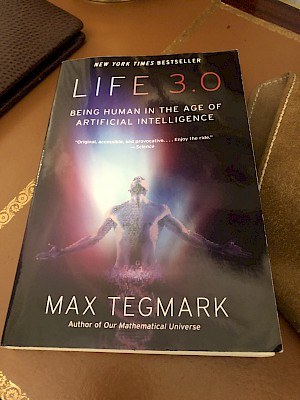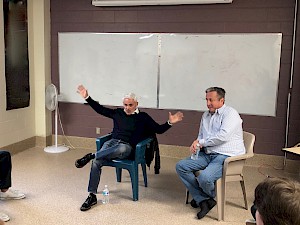Forever Young: Finding ways to live longer and healthier
February 08, 2022“In the end, it’s not the years in your life that count. It’s the life in your years.”
– Abraham Lincoln
Who doesn’t want to live longer? As we age and see the end of the runway coming, it can seem like our only option is to grumble and moan that it all happened too fast. Aging is an inevitable part of life. I will confess that when I turned 60, I didn’t like it one bit. I worked hard to enter my 61st year being in the best physical shape possible, mostly as a middle-finger salute to old age. But ultimately, unless I get bitten by a vampire or find a way to travel and park myself on the event horizon of a black hole, I know there’s not much I can do to slow the march of time.
That said, my objective is not so much about living a lot longer as it is about improving my “health span“, which means the number of years one can live well with prolonged vitality and without disease. Of course, adding a few years to my life is also welcome and looking increasingly possible.
First, a disclaimer: I am neither a doctor nor a gerontologist, so do your own research or consult a professional. And admittedly, this blog only touches the surface of a complex issue and omits a lot of important detail.
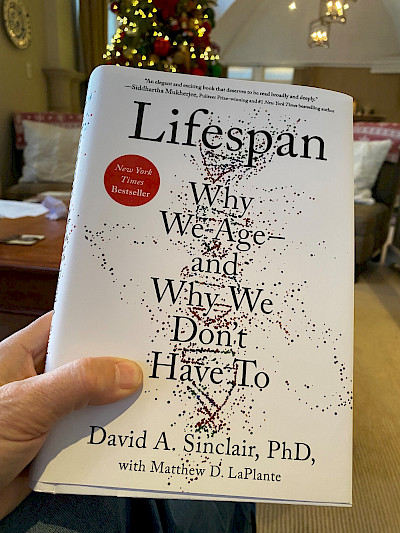 On my bedside table these days are books about longevity. The experts consistently agree there are some healthy habits you can incorporate which can help lead to a longer, healthier life. Simply, eat a healthy diet, do a moderate amount of exercise, get a good night’s sleep, avoid stress, and lay off the alcohol. On those points, I do a pretty good job.
On my bedside table these days are books about longevity. The experts consistently agree there are some healthy habits you can incorporate which can help lead to a longer, healthier life. Simply, eat a healthy diet, do a moderate amount of exercise, get a good night’s sleep, avoid stress, and lay off the alcohol. On those points, I do a pretty good job.
I have lived my life mostly on the Mediterranean diet which is considered one of the best diets to follow. It consists of fish, vegetables, fruit, nuts, and olive oil. I make the best olive oil in the world, so that helps. You should also curtail your intake of sugar, bread, and pasta. I do some form of exercise every day and I try to mix it up, doing different things, including building my muscle mass, which shrinks with age. Some experts might say seven days a week is too much for my age group, but I like it and find my body is not happy if I don’t exercise daily.
I spent the better part of my adult life operating on a measly four hours of sleep per night. Since I still functioned well, I was content to wear it like a badge of honour. Then my doctor told me that if I didn’t address my insomnia, it would take years off my life. So, I fixed it.
I used to endure a high level of stress, since for many years I was focused on being a high achiever in business. Those days are mostly gone, and I’ve now developed a balanced life of work, play, adventure and relaxation through reading and learning. While I still enjoy a glass of tequila or wine every now and then, I never drink unless I am out for dinner.
But what additional measures can we take for a prolonged, healthier life? The book, "LifeSpan: Why We Age and Why We Don’t Have To” by David A. Sinclair and journalist Matthew LaPlante is an interesting read. Critics have suggested that although Sinclair is a talented scientist, he is prone to exaggeration and hyperbole. That said, the book goes into a lot of detail on why we age and offers some suggested regimens to fight and even reverse the process, while mostly expressing enthusiasm about the future in this area of science.
One method that caught my eye is intermittent fasting. This concept simply extends the hours your body would be fasting naturally as you sleep. The recommended schedule is 16 hours of fasting. That means if you have dinner at 7pm, you then don’t eat again until 11am the next morning. The benefits from this kind of fasting include losing weight, improved heart health, better liver function, increased longevity, faster metabolism, enhanced mental function, and reduced inflammation. I have recently started intermittent fasting myself.
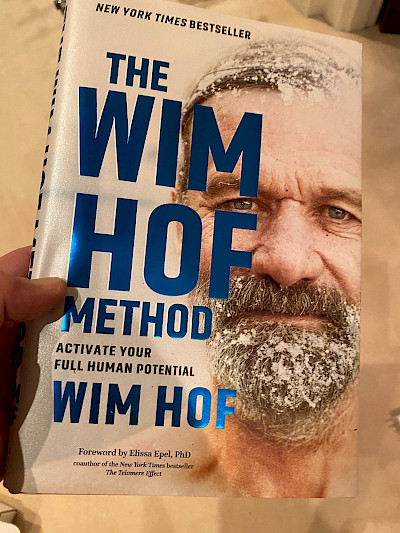
Sinclair and others have additional suggestions which involve taking supplements, such as Resveratrol, nicotinamide mononucleotide (NMN), Rapamycin and Metformin which address a variety of issues related to aging, including influencing epigenetic repair proteins called sirtuins, which in turn convince the thousands of different intermixed cells in your body to do what they were intended to do prior to aging. I have been doing some research on Rapamycin in particular. It’s an FDA-approved drug that was originally designed for transplant patients but is now thought to help “de-age” your internal organs. I might try it in small doses.
Another book I’m reading is “The Wim Hof Method”, by Wim Hof. If you haven’t heard of him, I recommend you watch the Vice documentary based on his pursuits. Nicknamed The Iceman, Hof has achieved some unbelievable feats, putting his body through various types of punishment that would kill most of us. He claims we are all capable of training ourselves to do the same, but I am skeptical. I doubt many people can climb Mt Everest wearing shorts no matter how much we train.
I do believe that his recommendations for cold water plunges and his breathing exercises have certain health benefits, though. Cold water plunges induce a controlled stress or hermetic shock response which releases endorphins, reduce swelling and inflammation, and stabilizes your blood pressure. I just started this regime recently, by following his recommended approach, which is to start slowly, with a 30 second cold shower, working your way to one minute the next day, one and a half minutes the day after and so on. Someone bought me a cold plunge barrel which is sitting in my garage, and I hope to get to it eventually. The initial shock of cold water takes some time to get accustomed to, but if you incorporate Hof’s breathing methods, the shock dissipates. I can’t tell you how great your body feels when you step out of the shower.
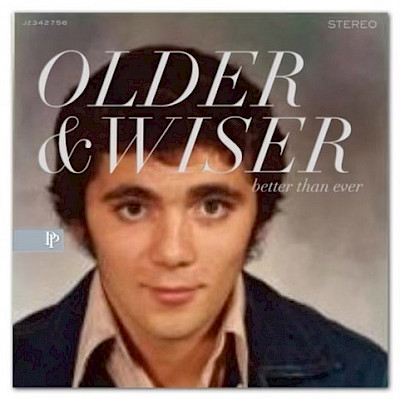
One of the most important parts of your body to consider is your brain. As I age, keeping my brain healthy and sharp is of tantamount importance to me. I have always believed that forcing yourself to learn new things is a great way to exercise your mind. The more challenging the new subject or task, the better. I am naturally curious, so that part comes easy. Additionally, you can eat certain foods that are good for the brain. Dark, leafy greens, blueberries, pure dark chocolate, Brazil nuts, lion’s mane mushrooms and turmeric are food groups you should investigate. They are all now part of my daily diet.
Lastly, attitude. I have come to believe that a positive attitude contributes greatly to staying young. I believe I am young, therefore I am. Reduce your stress by never sweating the small stuff in life. Worrying never achieves anything and most things we worry about, never materialize, and only causes unneeded stress.
One more thing: Laugh a lot. It’s really good for you. No one wants to hang around with a grumpy old man.




